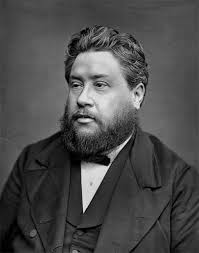
Charles Haddon Spurgeon was a British preacher, theologian, and writer who remains one of the most influential Christian leaders in history. Known as the “Prince of Preachers,” Spurgeon’s sermons drew thousands weekly and continue to inspire millions worldwide. His dedication to biblical truth, eloquent speech, and compassionate heart made him a defining voice of evangelical Christianity during the 19th century and beyond.
Quick Facts about Chales H. Spurgeon
| Full Name | Charles Haddon Spurgeon |
|---|---|
| Date of Birth | June 19, 1834 |
| Date of Death | January 31, 1892 |
| Age at Death | 57 years |
| Place of Birth | Kelvedon, Essex, England |
| Nationality | British |
| Occupation | Preacher, Theologian, Author |
| Education | Self-educated through wide reading and personal study |
| Family | Married to Susannah Thompson; father of twin sons |
| Known For | Founding the Metropolitan Tabernacle, extensive sermons, books, and theological writings |
Early Life and Education
Charles Haddon Spurgeon was born in Kelvedon, Essex, on June 19, 1834. His parents, John and Eliza Spurgeon, raised him in a devout Christian home. When he was just a toddler, he went to live with his grandparents in Stambourne, where he was exposed to rich theological discussions and a vast library of Puritan writings.
Although he received a modest formal education, Spurgeon was a voracious reader. From a young age, he showed an insatiable hunger for knowledge and spiritual truth. He read classics, theology, and church history extensively—especially the works of Puritans like John Bunyan and Richard Baxter—which shaped his theological convictions.
His conversion came at age 15 in 1850 when, during a snowstorm, he entered a small Primitive Methodist chapel in Colchester. The sermon, based on Isaiah 45:22 (“Look unto me, and be ye saved, all the ends of the earth”), deeply convicted him. That moment marked the beginning of his lifelong commitment to the gospel.
Ministry Beginnings
Shortly after his conversion, Spurgeon began sharing the gospel publicly. His natural eloquence and deep understanding of Scripture quickly gained attention. At only 17, he became pastor of Waterbeach Chapel in Cambridge, where his passionate preaching brought revival to the small village.
His fame spread rapidly, and in 1854, at the age of 19, he was invited to preach at New Park Street Chapel in London—a congregation once pastored by John Gill. Within months, the small chapel could no longer hold the crowds eager to hear him. Larger venues were used, and soon, thousands were attending his services.
The Metropolitan Tabernacle and Widespread Influence
As attendance continued to grow, the New Park Street congregation constructed a new building to accommodate the crowds. In 1861, the Metropolitan Tabernacle opened in London with seating for over 5,000 people. It became one of the largest and most influential churches in the world.
Spurgeon preached there for 38 years, and his sermons were transcribed weekly, printed in newspapers, and distributed globally. At the height of his ministry, his sermons sold tens of thousands of copies each week and were translated into multiple languages.
His preaching combined powerful biblical exposition with heartfelt appeals for personal repentance and faith. He emphasized salvation through Christ alone, the authority of Scripture, and the grace of God.
Writings and Publications
Charles Spurgeon was an extraordinary writer. Over his lifetime, he published more than 150 books, including devotional materials, commentaries, and collections of sermons. His famous devotional, “Morning and Evening,” remains a timeless classic.
Other notable works include:
- The Treasury of David – a detailed commentary on the Psalms.
- Lectures to My Students – a practical guide for preachers.
- All of Grace – a clear and heartfelt explanation of salvation.
His sermons, totaling over 3,500, were carefully preserved and continue to be printed today. His works have influenced countless pastors, theologians, and Christian readers across generations.
Family and Personal Life
Charles Spurgeon married Susannah Thompson in 1856. They had twin sons, Charles and Thomas. Susannah was a devoted supporter of her husband’s ministry, though she suffered from chronic illness for much of her life.
Despite his immense workload, Spurgeon faced personal struggles. He battled depression and physical ailments, including gout and kidney disease. Nevertheless, he remained steadfast in faith, often preaching through pain and discouragement.
His humility and compassion marked his ministry—he used much of his resources to support orphanages, schools, and missionary causes. In 1867, he founded the Pastors’ College (now Spurgeon’s College) to train ministers, as well as the Stockwell Orphanage for children in need.
Achievements and Legacy
- Established the Metropolitan Tabernacle, one of the largest churches of its era.
- Authored over 150 books and 3,500+ sermons, many still read today.
- Founded Spurgeon’s College, which continues to train Christian leaders.
- Established orphanages and charities that supported thousands.
- Inspired a global movement of evangelism, theological reflection, and preaching excellence.
Even after his death in 1892, Spurgeon’s influence did not fade. His sermons continue to be studied worldwide, and his emphasis on biblical truth, holiness, and grace remains a cornerstone of evangelical thought.
Net Worth
Charles Spurgeon lived modestly despite the immense success of his ministry. While his published works and sermons generated income, he directed much of it toward charity, education, and church expansion. He personally funded orphanages, theological training institutions, and relief efforts for the poor.
Although exact figures cannot be determined, Spurgeon’s “wealth” is best measured in spiritual influence rather than monetary gain. His writings and ministries continue to yield eternal value far beyond financial estimation.
Death and Legacy
Spurgeon’s health deteriorated in his later years due to gout and other illnesses. He passed away peacefully on January 31, 1892, in Menton, France, at the age of 57. His funeral drew tens of thousands of mourners, a testament to his profound impact on Victorian society.
He was buried in West Norwood Cemetery in London, and his life remains a beacon of faithfulness and courage. Today, theologians, pastors, and Christians continue to draw inspiration from his sermons and writings.
FAQs About Charles H. Spurgeon
In this section, I will provide you with FAQs and answers on Charles H. Spurgeon Biography. Keep on reading friend.
1. Who was Charles H. Spurgeon?
Charles Haddon Spurgeon was a 19th-century British preacher, theologian, and author known for his powerful sermons and Christian writings.
2. When was Charles Spurgeon born and when did he die?
He was born on June 19, 1834, and died on January 31, 1892, at the age of 57.
3. What is Charles Spurgeon best known for?
He is best known for his dynamic preaching, founding the Metropolitan Tabernacle, and authoring devotional classics like Morning and Evening.
4. Was Charles Spurgeon married?
Yes, he was married to Susannah Thompson, and they had twin sons, Charles and Thomas.
5. How many books did Spurgeon write?
He wrote and published more than 150 books and over 3,500 sermons.
6. What was his net worth?
His exact net worth is unknown, as most of his income was used for charitable and ministry purposes.
7. What was Spurgeon’s lasting impact?
His legacy continues through his writings, institutions, and influence on modern preaching and Christian devotion.
Conclusion
Charles H. Spurgeon’s life was a testimony to the transforming power of God’s Word. From humble beginnings in Essex to preaching before thousands in London, he devoted every moment to proclaiming the gospel of grace. His passion, eloquence, and generosity continue to shape Christian thought today, more than a century after his death.
His legacy endures not merely through his words but through the countless lives changed by them.



